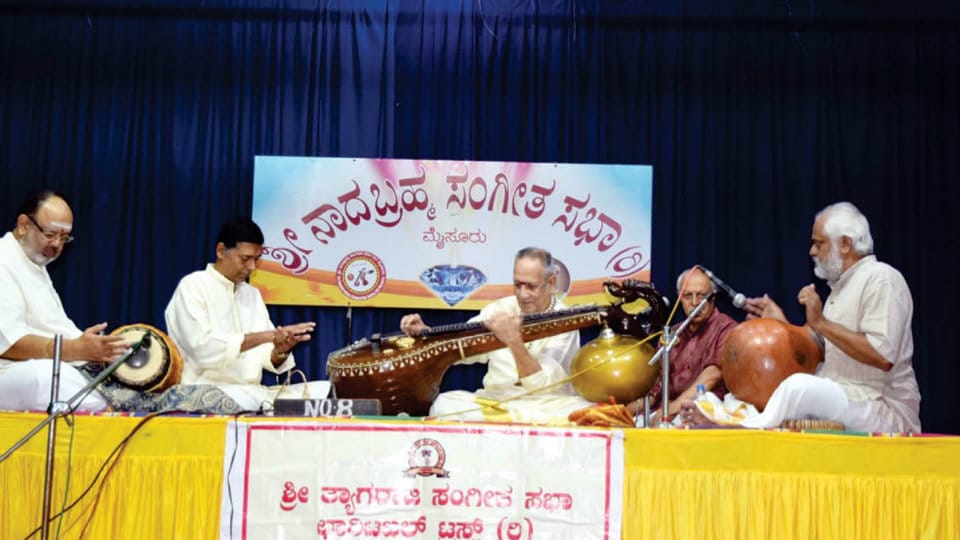An eminent vainika, an engaging speaker, a great teacher, a senior vaggeyakara and a self-taught musician R. Vishweshwaran gave a veena concert at Nadabrahma Sangeetha Sabha on the 10th of this month. His concerts are known for leisurely and elaborate versions. He not only possesses the sensitivity and creativity of a poet, but also the incisiveness and analytical approach of a logician. Take for example, the courage and confidence with which he rendered the Sriranga Prabandha in Bhauli composed by Venkatamakhi 600 years ago, wherein he explained the structural skills of the prabandhas (prabandhas existed before the formation of kritis and venkatamakhi was a bridge between the two).
Ravichandrika is a raga rarely taken up for detailed rendition. The ease with which the senior artiste elaborated the raga was the result of his experience and maturity. Tyagaraja’s ‘Makelara vicharamu’ was the expected composition in this raga which was succeeded by his own composition ‘Teliya Leru ninnu’ in Asaveri with ragalapana and swara kalpana. Behag is a raga considered worth only for a tail-piece in concerts generally by musicians. The mastery with which the artiste handled this raga was commendable. The technique of bringing out many swaras and gamakas with a single pluck mostly using only the left hand brought memories of S. Balachandar. While the raga was treated with dignity, Mysuru Vasudevacharya’s ‘Pahi Krishna Vasudeva Dehi Sadgatim’ brought the sympathy the composition expects. In the composition the composer implores the Lord to give him sadgati (salvation). Vasudevacharya is said to have composed this song when his wife departs him. The kalpana swaras developed for the pallavi were different with each giving a new experience to the listener.
Charukeshi was equally delightful with another self-composed number of the artiste ‘Vyomakeshi Charukeshi Shree Tripureshi’ on the Goddess, wherein the name of the raga was also intellectually woven. The pure notes, uncontaminated gamakas and the ripe sangatis in the alapana brought a gratified feeling to the audience. The beauty of Pahadi was unveiled with yet another self-composed piece ‘Jagamellamindina yugamellamindina’. The mangalam too was different with the not-usual ‘Challare Ramachandruni’ in Ahiri, which appeals the devotees to pour fragrant flowers, to shower handful of flowers at the Lord’s feet and to disengage oneself from the cycle of birth and death. Chaste accompaniment is what is required for such a concert.
Anoor Ananta Krishna Sharma on mridanga, G.S.Ramanujam on ghata and V.S.Ramesh on morching were pleasing and modest in their playing.
By Dr. Padmavathi Narasimhan








Recent Comments